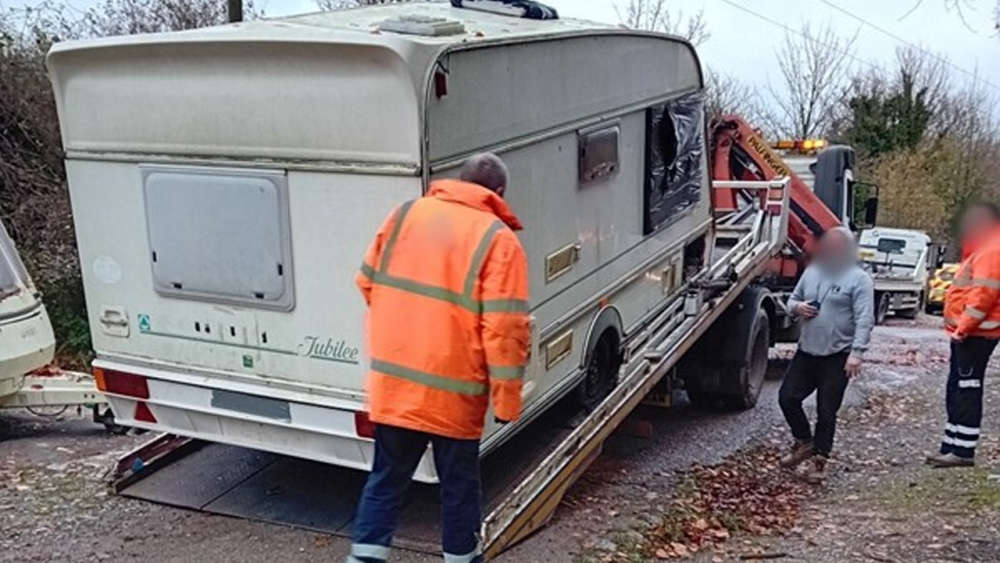
Wiltshire Council has successfully cleared an unauthorised encampment on a byway in Cholderton, near Amesbury, after obtaining a court order.
The site was home to several caravans, vehicles, chicken coops, aggressive dogs, and unauthorised fencing built on the public highway. Following the report, Environmental Enforcement Officers visited the camp, and the occupant was issued a seven-day warning notice to leave the site. Officers also attempted to conduct a welfare check with the occupant.
With the encampment still in situ after the expiration of the warning notice and with the council receiving further complaints about the blocked byway and aggressive dogs at the location, officers returned to the site accompanied by police officers. The occupant of the encampment was served with further notices to vacate the land, including a formal S.77 Direction to Leave notice. When the owner failed again to comply, Wiltshire Council obtained a s.78 Removal Order during a hearing at Salisbury Magistrates on 19 November, formally authorising the removal. The owner was also ordered to pay the council £750 in costs.
Environmental Enforcement Officers moved in and cleared the site of all caravans, vehicles, and structures on 27 November with the assistance of an approved contractor and Wiltshire Police.
Cllr Nick Holder, Cabinet Member for Cabinet Member for Highways, Streetscene and Flooding, said: “As a council and the local Highway Authority, we have a legal duty to assert and protect the rights of the public to enable the use and enjoyment of any highway for which we have responsibility.
“The encampment in Cholderton was illegally in place and blocking the route for others wishing to use the byway. I’d like to thank the enforcement officers for their tenacity and patience in working through the legal process and successfully ensuring that the land was cleared.
“As this case shows, we will take firm and decisive action to remove unauthorised developments in Wiltshire.”
People wishing to report an unauthorised encampment can use the online reporting system, or by telephone on 0300 456 0100.

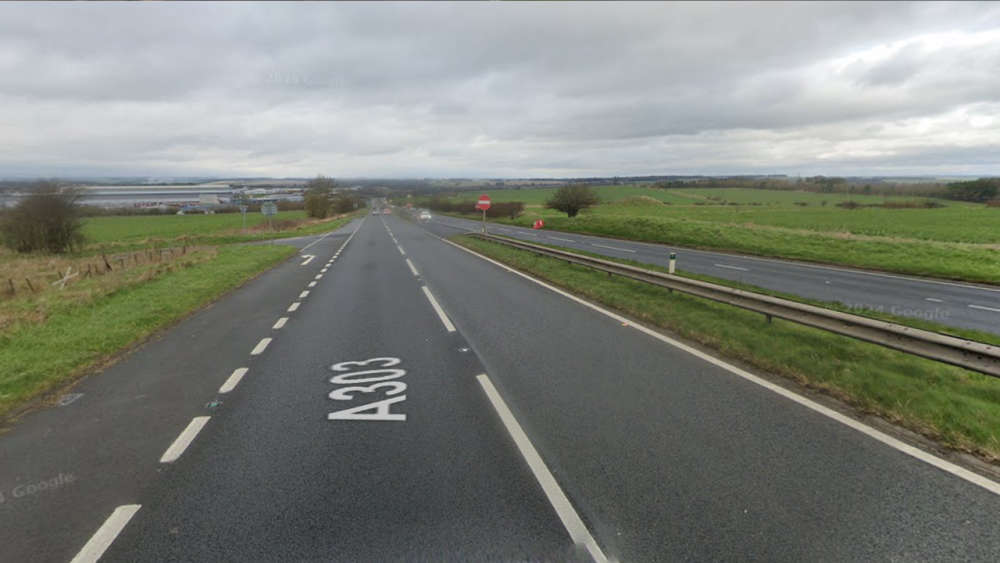 Child suffers life-threatening injuries in collision on A303
Child suffers life-threatening injuries in collision on A303
 Mum to join Stars Appeal’s Walk for Wards in support of Neonatal Unit that cared for her daughter
Mum to join Stars Appeal’s Walk for Wards in support of Neonatal Unit that cared for her daughter
 Salisbury battle past Tonbridge Angels at the Ray Mac
Salisbury battle past Tonbridge Angels at the Ray Mac
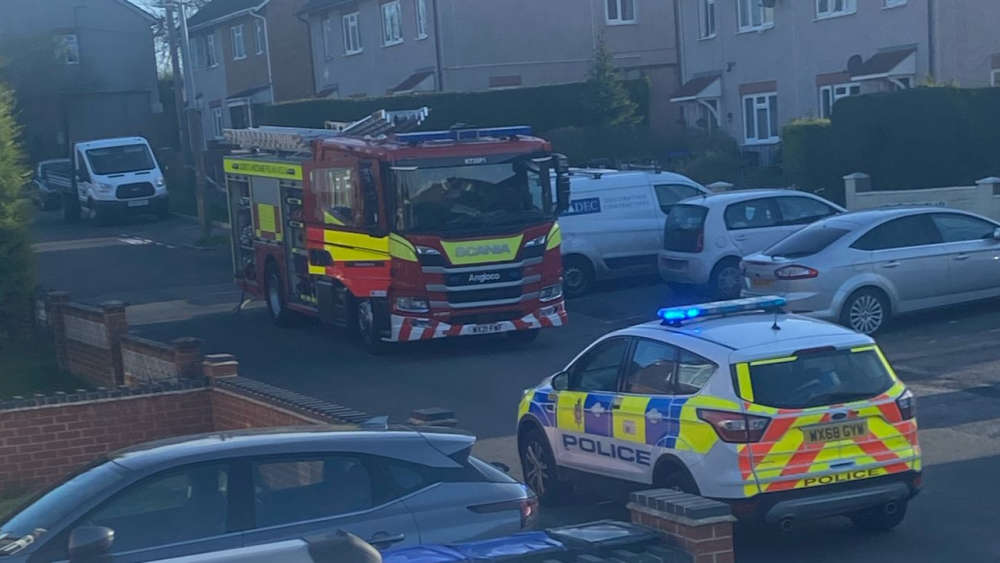 Emergency Services stood down after substance scare in Durrington
Emergency Services stood down after substance scare in Durrington
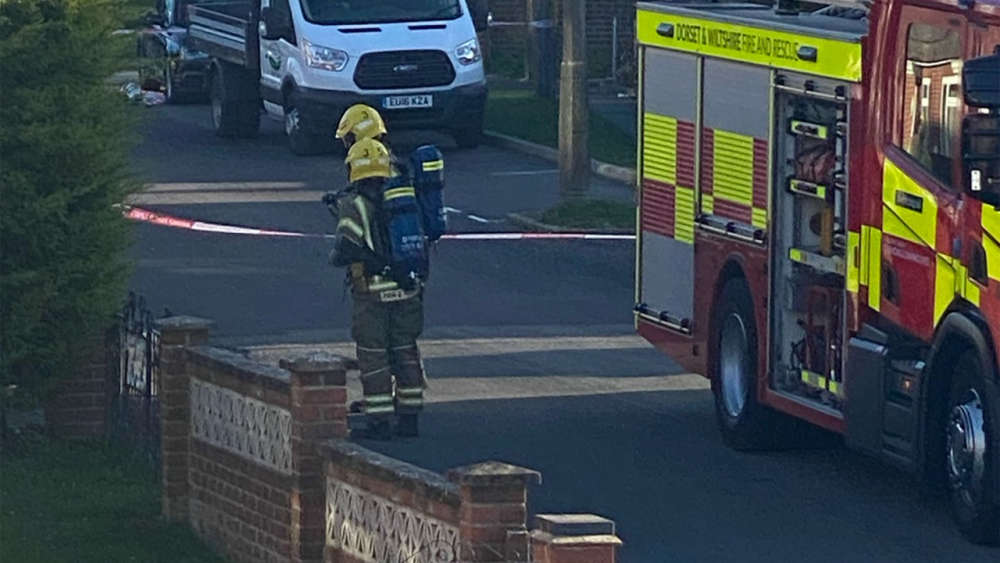 Emergency Services close road in Durrington for incident
Emergency Services close road in Durrington for incident
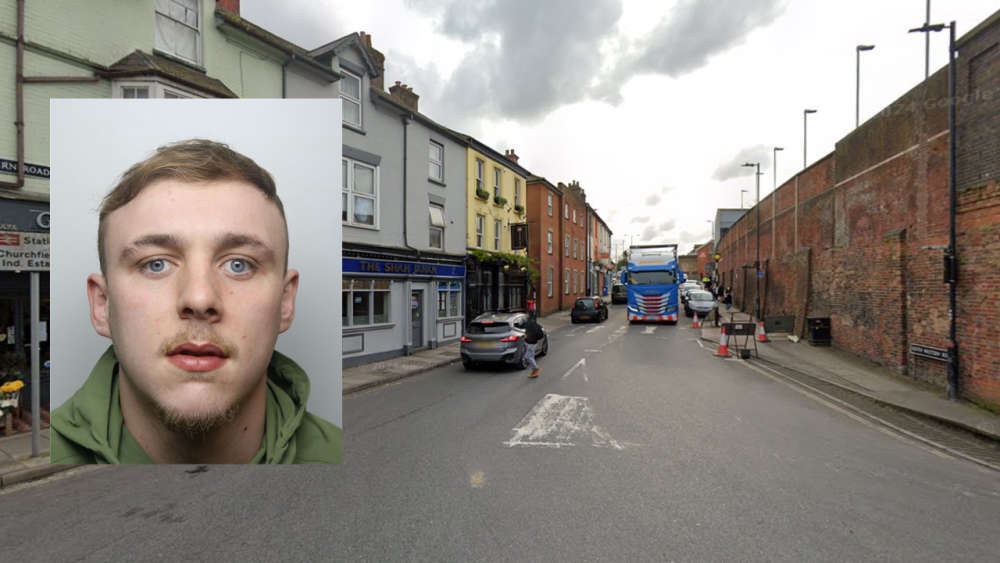 Police hunt man after collision injures two people in Salisbury
Police hunt man after collision injures two people in Salisbury
 Sarah Gregson joins Wiltshire Creative as Take Part Director
Sarah Gregson joins Wiltshire Creative as Take Part Director
 Salisbury's relegation battle continues at the Ray Mac against Tonbridge Angels
Salisbury's relegation battle continues at the Ray Mac against Tonbridge Angels









